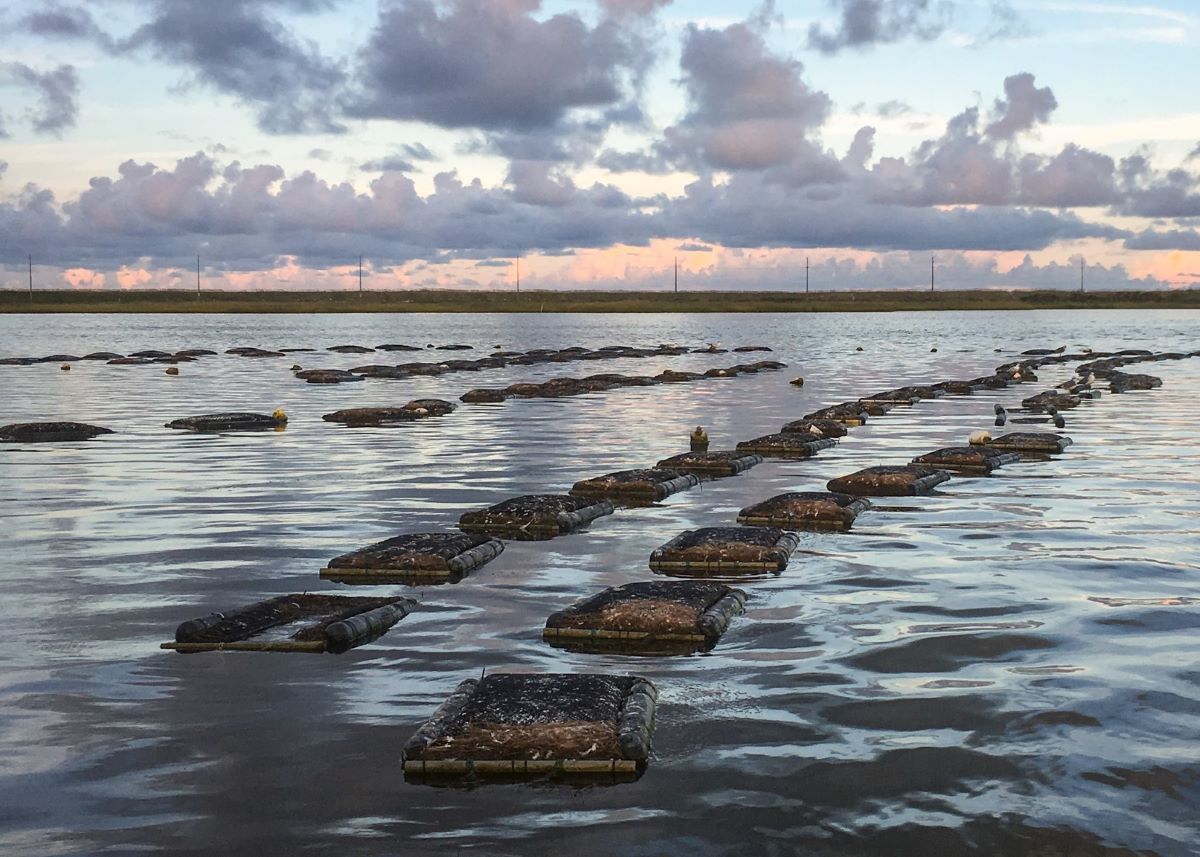
Topsail Island towns and their counties have joined forces in asking state legislators for a moratorium on shellfish leases in their waterways.
The Pender County Board of Commissioners last week adopted a resolution calling for the state to pump the brakes on issuing new shellfish lease permits, particularly water column leases, in Pender and Onslow counties.
Supporter Spotlight
Pender commissioners were the last of five elected boards to approve the resolution, an idea of which was first circulated back in August by the Topsail Island Shoreline Protection Commission, or TISPC.
The commission, which is made up of elected officials and local government appointees from the island’s three beach towns – North Topsail Beach, Surf City, and Topsail Beach — and Onslow and Pender counties, functions as a collaboration to preserve the barrier island’s beaches and surrounding waterways.
Moratoriums in waters north and south of Onslow and Pender counties are driving up demand for aquatic business activities in those counties, affecting recreational fishing, use of small watercraft by tourists, “and is impacting the beauty of a marsh area that did not have the plastic poles and other equipment marking shellfish areas,” according to a letter the commission’s former chair emailed to North Topsail’s town manager.
While the commission is in favor of shellfish farming, limits should be placed on the types and density of leases, the letter states.
North Topsail Beach Mayor Pro Tem and Topsail Island Shoreline Protection Commission Vice Chair Mike Benson said during an Oct. 2 town board meeting that there are about 30 existing leases in waters behind Topsail Island.
Supporter Spotlight
“Density is increasing,” he explained. “There’s conflict now between recreational boaters and tourism and commercial aquaculture. We’re not restricting the number that are already in place. Those will continue on as they have in the past. All we’re asking for is there’s a pause to figure out what the next step is. But, we shouldn’t be the ones that are suffering here in terms of tourism and boater access and recreational activities because of interference of these shellfish leases, particularly column leases.”
Locals spoke out against water column leases proposed for just under a dozen acres in Pender County in a public hearing hosted early this year by the North Carolina Division of Marine Fisheries.
A majority of those who spoke argued that additional leases in the waters near Topsail Island would infringe upon popular fishing spots, impede boating and kayaking access, affect the viewsheds of waterfront properties near the farms, and may affect water quality from birds roosting on floating equipment.
Unlike bottom leases, where shellfish farming gear must be placed on or within 18 inches of the waterbed, equipment used in a water column lease cannot rest on the bottom or extend more than 18 inches above the bottom. Water column leases are required to be installed over bottom lease areas.
The division, which oversees shellfish lease permits, denied those water column lease applications.
The North Carolina General Assembly in 1989 enacted law that allows shellfish leases in the water column. Today, there are more than 150 water column leases along the North Carolina coast.
The legislature enacts nearly all regulations on shellfish leases and it implements shellfish lease moratoriums.
“Any stipulations on what can and can’t be addressed in a moratorium is up to the legislature,” Marine Fisheries Public Information Officer Patricia Smith said in an email earlier this month.
Brunswick County’s shellfish lease moratorium dates back originally to 1949. A moratorium in Core Sound was established in 1993. In 2019, moratoria were placed in New Hanover County and in Bogue Sound.
During the public hearing on the proposed leases in Pender County, a North Carolina Shellfish Growers Association representative advised residents to talk to their local and state elected officials about getting moratoriums lifted in waters south of Pender County so growers will have more areas in which to farm.







